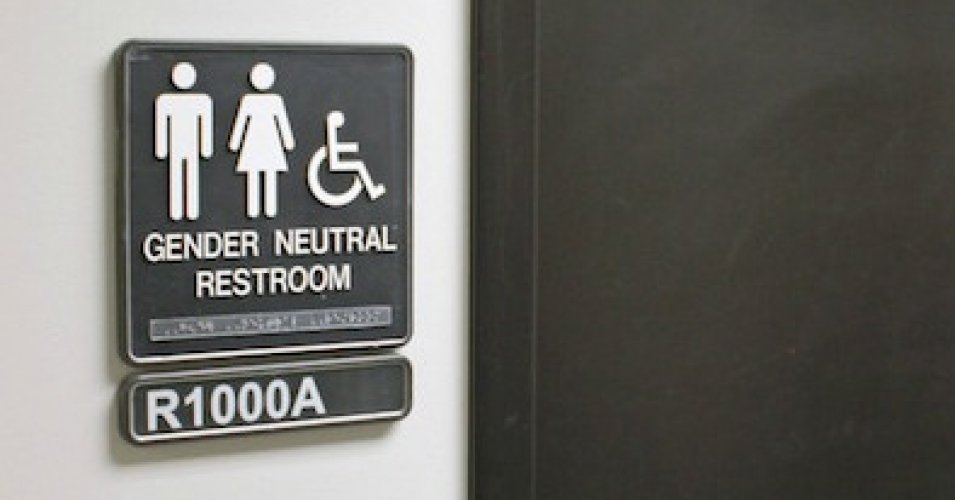
John Kasich says he wouldn’t have signed North Carolina’s so-called bathroom bill shielding businesses from anti-gay lawsuits and requiring transgender people to use restrooms corresponding to the sex on their birth certificates.
In an interview aired on CBS News’ “Face the Nation” Sunday, the Ohio governor called the legislation too potentially “contentious.”
“I believe that religious institutions ought to be protected and be able to be in a position of where they can live out their deeply held religious purposes,” he said in remarks released Saturday.
“But when you get beyond that it gets to be a tricky issue. And tricky is not the right word, but it can become a contentious issue.”
“In our state, we’re not facing this, so everybody needs to take a deep breath, respect one another, and the minute we start trying to write laws, things become more polarized, things – they become more complicated,” he added.
“Obviously I don’t want to force people to violate their deeply held religious convictions, but we’d have to see what that’s all about. I wouldn’t have signed that law from everything I know, I haven’t studied it.”
Here’s a novel solution: private property rights.
As it stands, people who support passing such laws (liberal or conservative) assume that restrooms in a private facility are publicly owned. But are they? The bathroom in your house is not public property; at least not yet. You’re permitted to have whatever bathroom policy you wish in your home regarding gender, transgender or any other classification. Why can’t a private business or corporation do the same?
There would be no perceived need to pass laws preventing people from lawsuits if we did not violate the boundaries of people to decide this for themselves in the first place. It all goes back to Jim Crow laws in the old American South. These unjust and irrational laws imposed racial segregation on private businesses, back in the days when racial segregation was a thing. Ultimately the federal government responded, not by repealing the unconstitutional mandates on private property, but by installing their own mandates on private property owners nationally. We went from local governments requiring private property owners to segregate to the federal government requiring private property owners to integrate. Now we extend that principle and policy beyond race to everything else, including gender, transgender, and so forth. It seems absurd to some, but in reality it’s consistent with the original error.
John Kasich admits he has no answer. On the one hand, he does not want people to violate their personal or religious convictions. On the other hand, as a liberal Republican, he does not want discrimination. He can’t figure out the right government solution. Why not? Because there isn’t one. Not on the matter of bathrooms in North Carolina, nor on anything else where government improperly coerces citizens to act against their will or conscience. Government, if it’s to mandate anything, has to sacrifice someone. Instead, government should back away and not set one-size-fits-all policies in the first place, and leave it for private owners to decide.
With this issue, as with so many others, the answer lies with a simple principle America’s founders first envisioned: private property. You operate the bathrooms as you see fit in your small business or corporation, and I will do the same with mine. Just as we already do with our own private homes.
Why must this be so complicated? And at what point did the concept of private property go off the radar screen of politicians in both parties, not to mention most Americans?
Follow Dr. Hurd on Facebook. Search under “Michael Hurd” (Rehoboth Beach DE). Get up-to-the-minute postings, recommended articles and links, and engage in back-and-forth discussion with Dr. Hurd on topics of interest. Also follow Dr. Hurd on Twitter at @MichaelJHurd1
Dr. Hurd is now a Newsmax Insider! Check out his new column here.
